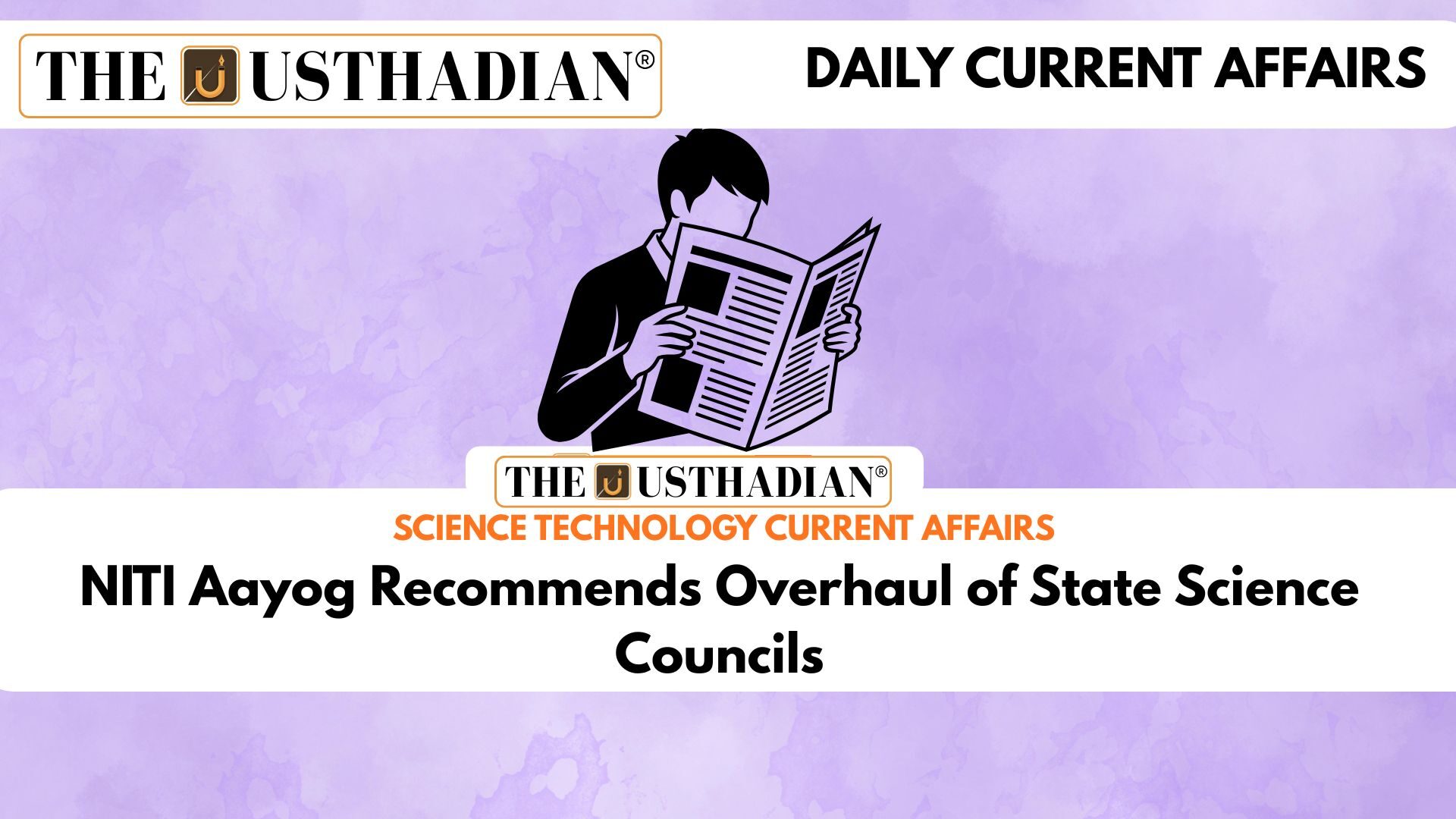Shift from Core Grants to Project-Based Support
NITI Aayog Recommends Overhaul of State Science Councils: In 2025, NITI Aayog proposed a major reform in the funding model for State Science and Technology (S&T) Councils, suggesting a transition from core grant allocations to a project-based funding system. The recommendation aims to improve accountability, enhance research outcomes, and address regional imbalances in scientific development.
The proposal comes amid concerns over the limited impact of state-level science councils on India’s overall research output.
Background and Purpose of State S&T Councils
Established in the 1970s, State S&T Councils were created to decentralize scientific planning and align research with local socio-economic priorities. These councils are responsible for promoting grassroots innovation, supporting patent filings, and advising on science policy at the state level.
Despite their mandate, most councils remain underfunded, relying heavily on the Department of Science and Technology (DST) for limited central support.
Static GK fact: The DST, under the Ministry of Science and Technology, was established in 1971 to coordinate science policy and promote research across India.
Uneven Funding and Regional Gaps
The funding landscape for State S&T Councils reveals stark disparities. For instance, Gujarat operates with a ₹300 crore budget, of which only ₹1.07 crore comes from the Centre. Kerala, with a ₹150 crore budget, receives no central funding. Meanwhile, states like Sikkim, Tamil Nadu, and Uttarakhand have seen budget reductions, while Maharashtra’s allocation has doubled.
These inconsistencies highlight the need for a more equitable and performance-driven funding model.
Performance Challenges and Structural Issues
The report notes that most scientific output in India continues to come from central institutions, with state councils lagging behind. Their dependence on core grants and inability to attract competitive project funding from central ministries and agencies have limited their effectiveness.
Static GK Tip: India ranks among the top five countries globally in terms of scientific publications, yet state-level contributions remain minimal.
Recommendations for Reform
NITI Aayog recommends a project-based funding approach to encourage innovation and improve efficiency. It also calls for better governance structures, stronger ties with local industries, and increased support for state universities over central research bodies.
The goal is to build regional research ecosystems that can contribute meaningfully to national scientific goals.
Toward a Balanced Science Ecosystem
The proposed reforms aim to reduce regional disparities, promote locally relevant innovation, and foster collaborative research between central and state institutions. By linking funding to performance and encouraging industry partnerships, the initiative seeks to create a more dynamic and inclusive science and technology framework for India.
Static Usthadian Current Affairs Table
NITI Aayog Recommends Overhaul of State Science Councils:
| Fact | Detail |
| Reform Proposed By | NITI Aayog |
| Year of Proposal | 2025 |
| Target Institutions | State Science and Technology (S&T) Councils |
| Current Funding Model | Core grant-based |
| Proposed Funding Model | Project-based funding |
| Central Funding Body | Department of Science and Technology (DST) |
| Notable Budget Disparity | Gujarat: ₹300 crore (₹1.07 crore from Centre), Kerala: ₹150 crore (no Central funding) |
| Key Recommendation | Strengthen links with local industries and state universities |
| Objective | Improve accountability, reduce regional disparities, boost local innovation |
| DST Establishment Year | 1971 |








